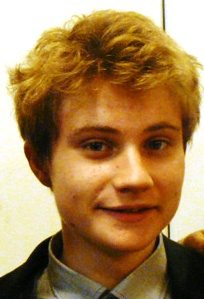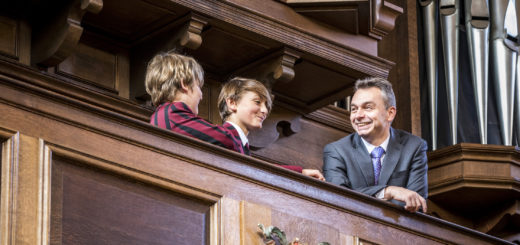From École to School by Harry Marcel
Harry is an extremely well educated young man going to a top London secondary. He is 17 years old. He has experience of both the French and English School systems. These are his views. Enjoy!
Between the ages of 4-11 I went to the Lycée Francais Charles de Gaulle in South Kensington, before getting a place at Kings College School Wimbledon. The differences are quite vast. I always considered myself English when I was at the Lycée, however at kings I felt as French as a dissatisfied baguette.
In the French primary school system, a large proportion of students’ time is spent learning to write in the hieroglyphics known as “cursif”, requiring hours of looping continuously with a “stylo plume”, and numerous exercise books in which letters must be written to exacting standards. Even the paper we used is different, with each line subdivided into 5 smaller lines, so letters can be written with unnecessary precision, for instance a minuscule “t” being two smaller lines in height, and vertical lines dividing these into squares, to ensure no unruly student is over sizing his capitals. Finally after years of grueling practice one has finally learnt the wizardry of French script, only to be faced with an even more insurmountable task: grammar, conjugation and spelling. I shan’t go into details, however needless to say, there are more tenses than depressed smokers in France, and that’s saying something. In French language lessons we very rarely did compositions or creative writing. The vast majority of our time was spent learning the rules and regulations of literature, reciting endings, and labeling sentences with the correct grammatical names, while “bien sûr” ensuring one is underlining using the correct colour pen, with terminology generally so long it must be turned into an acronym.
Mathematics was similar to that in a UK school, only jumbled up, so things that students in Britain learnt at the age of 6 I did at 9, and vice versa. We also tended at the Lycée to move at a much slower pace, as there was no streaming according to ability, and most topics were explained in a most convoluted manner, for instance learning to calculate the area of a square by planting our own lettuce, and using them as an example for square centimeters. Yes, in French schools, even Math’s class comes with a side salad.
Then there was geography and history. Geography predominantly involved learning the names of all the French regions for a test, cheating on said test, and subsequently downloading Google maps. History involved reading a printout about a historic period or event, and then spending the rest of the lesson copying out the aforementioned printout, just to ensure we hadn’t forgotten our writing skills between being trampled on whilst waiting for a disappointing lunch and returning to the classroom. History and geography tests at the Lycée involved facts, and the regurgitation of names, dates and events, meanwhile when moving to an English school, I remember being extremely confused by empathy essays. One involves knowledge of events but little understanding, and the other involves a little knowledge, understanding and then for some reason pretending we were there.
Of course, there is science. At the Lycée we did no practicals, and generally learnt about the theories and facts (reoccurring themes, I know). However, at Kings, we would spend half the lesson being told about health and safety in the lab, which I quickly discovered was common sense + goggles, and then, sporting these goggles, generally heating something up to “explore” a hypothesis that had already been proven at some point in the preceding centuries.
Finally, the cultural differences were the most extraordinary. At the beginning of a school day you arrive at school, take the register and begin your day. At least in France you do. At Kings we had this bizarre thing called “Assembly”. This completely unnecessary hour long ritual involved singing something religious, and then standing up as the almighty headmaster entered to read out sports results. The other striking difference is of course the uniform. Going from fashionably ripped Armani’s to charcoal trousers you would think is pain enough, but then I was presented with my blazer. This crimson jacket with a bright blue crest and binding of a similarly horrific colour was designed to ensure you looked like the offspring of a pillar box, and also ensuring that anyone could quickly identify you as a private school boy. Health and safety, you see.
All in all one could sum up the differences quite simply: in the French system you are taught facts, rules and when it’s all right to break them, as well as how to hate any form of authority. This is why teachers lead a firm example by going on strike once a fortnight. I would describe the lessons as very methodical, rarely allowing much scope for creativity. At the Lycée, classes were generally 30+ students, no school uniform of course and boys and girls are not separated. On the other hand, I found that the British system encouraged creative thinking, often rewarding intelligent, and more individual responses to tasks. However, I disliked the highly competitive spirit of the school, especially when all-boy (however competition becomes gossip in an all-girl environment) ranging from students, even to competitions between houses, and with other schools, which often created a desire to be better, or best, and the stigma if you are not. These qualities are seen in alumni of such schools, a sense of self-importance, and a lack of empathy or respect for others. I do not consider this a healthy school environment. Another important point to consider is the stress levels these top public schools influence, around exams, fixtures, and even simple homework tasks. Keeping up appearances is important for such schools, and ensuring excellent results can often come at the expense of the students’ sanity. However, students are knowledgeable, informed and often very perceptive.
Personally, I would investigate more alternative options. Steiner schools can be an interesting option, producing very unique pupils. Home tutoring is another, a very efficient way to go about education – the plus side is having a program tailored to the student, and will likely produce good results, the down side – social life! But that can be arranged with classes, sports etc. It quite simply depends on the student’s needs and desires.










